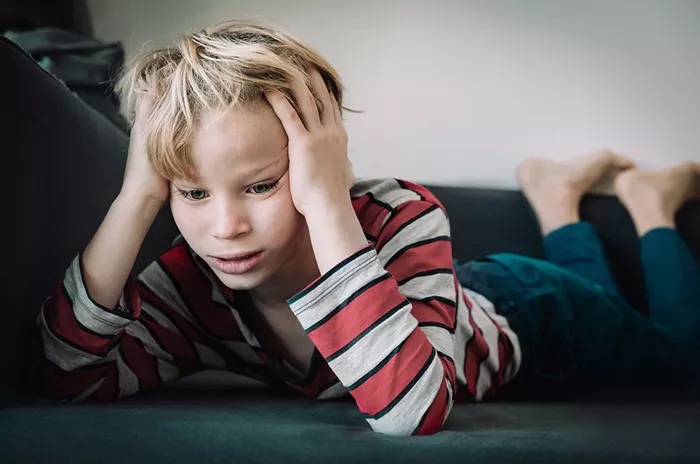Anxiety is a natural human response to stress and is characterized by feelings of fear, apprehension, and nervousness. It can arise from a variety of triggers, ranging from everyday concerns about work and relationships to more significant life events such as a medical diagnosis or financial troubles. While occasional anxiety is a normal aspect of life, persistent or excessive anxiety that interferes with daily functioning may indicate an anxiety disorder, which requires management and treatment.
The Physiology of Anxiety
When we perceive a threat, our body’s sympathetic nervous system activates the fight-or-flight response, releasing a flood of hormones such as adrenaline and cortisol. These chemicals prepare the body to respond to the threat by increasing heart rate, blood pressure, and energy supplies. While this response is critical for survival in acute situations, prolonged activation can lead to detrimental effects on health and well-being.
Cognitive, Behavioral, and Emotional Symptoms
Anxiety manifests in various cognitive, behavioral, and emotional symptoms. Cognitively, it may present as worries, intrusive thoughts, or a racing mind. Behaviorally, it might lead to avoidance of certain situations or people. Emotionally, anxiety can make individuals feel nervous or constantly on edge.
Effective Strategies to Calm Anxiety
There are numerous strategies to help calm anxiety, ranging from lifestyle adjustments to professional treatments. These methods can be practiced independently or combined for better results.
Cognitive Behavioral Techniques
1. Understanding Thought Patterns: Cognitive Behavioral Therapy(CBT) is a highly effective treatment for anxiety. It involves identifying and challenging negative thought patterns and beliefs that contribute to anxiety, replacing them with more realistic and positive ones.
2. Mindfulness and Meditation: Regular practice of mindfulness meditation can help individuals learn to stay present and decrease the tendency to ruminate on past events or worry about the future. Techniques can include guided imagery, breathing methods, and body scans.
3. Exposure Therapy: Gradually and repeatedly exposing oneself to a source of anxiety under controlled conditions can help reduce the fear response over time. This technique is particularly useful for specific phobias or social anxiety.
Lifestyle Modifications
1. Regular Physical Activity: Exercise is a powerful anxiety reliever. It promotes the release of endorphins, natural mood lifters that can keep anxiety and depression at bay. A routine as simple as a daily 30-minute walk can make a significant difference.
2. Balanced Diet: Eating a healthy diet can help regulate mood and energy levels. It is essential to minimize or avoid alcohol, caffeine, and sugary snacks as these can exacerbate anxiety symptoms.
3. Adequate Sleep: Anxiety can interfere with sleep, creating a vicious cycle. Establishing a regular, relaxing bedtime routine and ensuring a comfortable sleep environment can improve sleep quality, which in turn, can reduce anxiety.
Relaxation Techniques
1. Deep Breathing Exercises: Deep diaphragmatic breathing is a simple yet effective technique to reduce anxiety. It helps slow down the heart rate and promote a feeling of calm.
2. Progressive Muscle Relaxation (PMR): PMR involves tensing and then relaxing different muscle groups in the body. This process can help focus the mind and reduce the physical symptoms of anxiety.
3. Aromatherapy: Using essential oils, such as lavender or chamomile, can have a calming effect when inhaled. Aromatherapy can be used in baths, massage oils, or diffusers.
Support Systems
1. Social Support: Building and maintaining a network of family and friends can provide emotional support and reduce feelings of isolation, which are often associated with anxiety.
2. Professional Help: For those whose anxiety is pervasive or severe, seeking help from a mental health professional can be crucial. Therapists can provide a safe space to explore the origins of your anxiety and develop strategies to cope with it.
3. Support Groups: Joining a support group can allow individuals to share their experiences and strategies with others facing similar challenges, fostering a sense of community and mutual support.
Alternative Therapies
1. Yoga and Tai Chi: These practices combine physical postures, breathing exercises, and meditation to improve mental health. Regular practice can help reduce stress, enhance physical relaxation, and improve mental clarity.
2. Acupuncture: Some evidence suggests that acupuncture can help relieve symptoms of anxiety. It is believed to stimulate nerve-rich areas of the skin surface to impact bodily functions, promoting relaxation and well-being.
3. Supplements and Herbs: Certain supplements, such as omega-3 fatty acids, green tea, and herbs like ashwagandha and kava, have been found to have anxiety-reducing effects. However, it’s important to consult with a healthcare provider before starting any new supplement regimen, especially if you are taking other medications.
Integrating Strategies for Long-Term Benefits
To effectively manage anxiety, it’s beneficial to integrate multiple strategies. This might involve combining daily exercise with mindfulness and adequate sleep, supported by a healthy diet and social interactions. For enduring benefits, consistency is key.
Conclusion
Anxiety, whether occasional or chronic, can significantly affect quality of life. However, by employing a combination of cognitive techniques, lifestyle changes, relaxation practices, and professional support, individuals can manage their symptoms and improve their well-being. Understanding what strategies work best for anxiety can empower you to lead a more balanced and fulfilling life, free from the bonds of anxiety.
[inline_related_posts title=”You Might Be Interested In” title_align=”left” style=”list” number=”6″ align=”none” ids=”8032,7971,7927″ by=”categories” orderby=”rand” order=”DESC” hide_thumb=”no” thumb_right=”no” views=”no” date=”yes” grid_columns=”2″ post_type=”” tax=””]






























